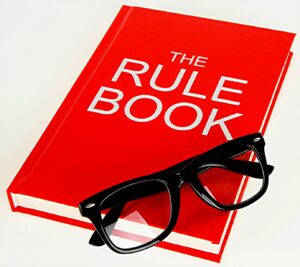
In Peterson v Welwood 2018 BCSC 1379 the court dismissed a Wills variation action brought by a son who had already received 51% of the estate through receipt of a jointly owned property that passed outside of the estate and a bequest of $20,000 bonds.
The court found the dispositions were within the range that was an adequate, just and equitable provision that would have been made by a contemporary judicious parent.
The court stated that while the plaintiff had a bona fide expectation that his father would provide for him on his death, he had only seen his father a few times in the years prior to his death, and the relationship had become very strained after 2007.
The deceased will left 50% of his estate to a charity, with the remainder going and neighbours except for the bonds.
The Court of Appeal in Chan v Lee estate 2004 BCCA 644 at paragraph 43 affirmed that judicial interference with testamentary authority should be minimized and the court should not approach the wills variation act as a means to right all the perceived wrongs of the past or to improve upon the degree of fairness of a will if the testator has met his or her obligations under the wills variation act (now s 60 WESA)
The leading case of Tataryn v Tataryn (1994)2 SCR 807 held that the court must apply an approach that accords with the contemporary view of marital and parental obligations.
The court in Tataryn recognized that the foregoing assessment necessarily involved the balancing of competing claims and held that where the size of the estate permits all moral and legal claims should be satisfied.
In this particular case, it was important for the court to recognize that jurisprudence also establishes that in determining whether the will maker has fulfilled his or her obligations, the court may consider gifts made outside the will.
If the will maker has made gifts to individuals other than the claimant or has arranged his affairs to facilitate a passing of assets to such individuals outside the framework of the will,the moral duty to a claimant maybe intensified.
Conversely and depending on the circumstances, a will maker’s moral duty may be diminished or negated entirely or he or she has made gifts to a claimant either before death or in consequence of it. Doucette v McInnes 2009 BCCA 393 at para. 84.
The date of the deceased death is the appropriate date at which to assess the value of the estate. Graham v Chalmers 2010BCCA13 at para.35.
The gross value of this estate was approximately $345,000, but after deducting estate expenses the actual value of the estate at the date of death was $288,000.
The plaintiff and the deceased were joint owners of a property, which devolved to the plaintiff upon the death of the deceased, and the value of the property as of 2017 was $450,000.
The court found as a fact that the plaintiff had contributed approximately $20,000 towards the purchase price of the property, which was approximately one fifth of the purchase price.
The plaintiff had worked on the farm property as a child, and claimed unjust enrichment in his court action, but the court found that as a general rule, the fact that unpaid work performed by a child or teenager in the context of routine family chores constituted a juristic reason to deny a claim for unjust enrichment.
The court held that the value of the estate as of the date of death was approximately $345,000, and the value of the deceased property that passed to the plaintiff by right of survivorship was $305,000, plus the bequest of $20,000 bonds.
Most importantly for this decision, the court held that the testator’s moral duty may be diminished or negated entirely where the claimant has received gifts or assets on the testator’s death outside the framework of the will. JR v JDM 2016 BCSC 2265 at para.88.
While the court found that the plaintiff believed that his father had treated him unfairly , the disappointment and mistrust that the deceased had for his son, whether justified or not, precipitated the change in his estate planning , but even with the change , the plaintiff still received %51 of the deceased’s assets as of the date of death.
The court therefor concluded that the disposition of the deceased’s assets was one of a range of possible dispositions on his death. The held that the option chosen by the deceased fell outside the range of options that might be considered appropriate by a contemporary judicious parent and thus should be respected.
The deceased’s arrangement of his affairs fell within the range of testamentary freedom entitled to deference – Saugestad v Saugestad 2008 BCCA 38 at para.39.




